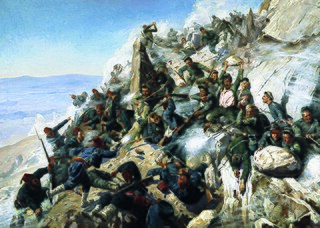
Johann Friedrich Gustav von Eschscholtz was a Baltic German physician, naturalist, and entomologist. He was one of the earliest scientific explorers of the Pacific region, making significant collections of flora and fauna in Alaska, California, and Hawaii.
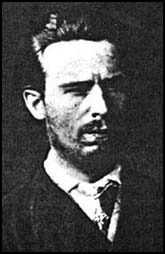
Sergey Gennadiyevich Nechayev was a Russian communist revolutionary associated with the nihilist movement and known for his single-minded pursuit of revolution by any means necessary, including terrorism. He was the author of the radical Catechism of a Revolutionary.
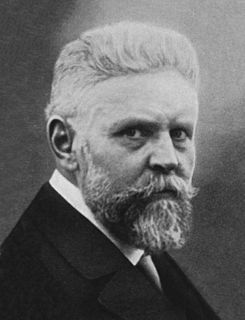
Alfred Ploetz was a German physician, biologist, eugenicist known for coining the term racial hygiene (Rassenhygiene) and promoting the concept in Germany. Rassenhygiene is a form of eugenics.
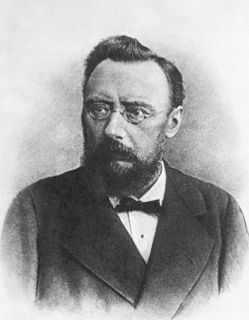
Johann Friedrich Horner was an ophthalmologist based at the University of Zurich, Switzerland.

Alfred Kleiner was a Swiss physicist and Professor of Experimental Physics at the University of Zurich. He was Albert Einstein's doctoral advisor or Doktorvater. Initially Einstein's advisor was Heinrich F. Weber. However, they had a major falling out, and Einstein chose to switch to Kleiner.

Karl Gustav Himly was a German surgeon and ophthalmologist from Braunschweig.

Imperial Moscow University - the oldest of the universities of the Russian Empire, established in 1755. The first of the twelve imperial universities of the Russian Empire.
The Russian Messenger or Russian Herald has been the title of three notable magazines published in Russia during the 19th century and early 20th century. Since 1991, in Moscow, a new publication named the Russian Messenger has appeared once again. It is published weekly and its editor-in-chief from 1991-2013 was Alexei Senin, from 2014 Oleg Platonov.
The Struve family were a Baltic German noble family of Eastphalian origin and originated in Magdeburg, the family produced five generations of astronomers from the 18th to 20th centuries. Members of the family were also prominent in chemistry, government and diplomacy.
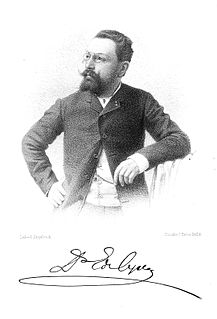
Elias von Cyon, also known as Elie de Cyon, born Ilya Fadeyevich Tsion ; was a Russian-French physiologist born to Jewish parents in Telšiai, Russian Empire. His father was a Cantonist.
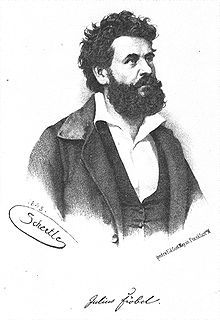
Carl Ferdinand Julius Fröbel was a German geologist and mineralogist, journalist, and democratic revolutionary already during the Vormärz era. He was active in Germany, Switzerland, the United States and South America at different times in his life.
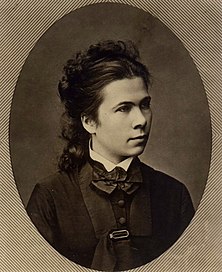
Nadezhda Prokofyevna Suslova was Russia's first female physician and the sister of Polina Suslova. She worked as a gynecologist in Nizhny Novgorod, and was involved in many charity efforts.
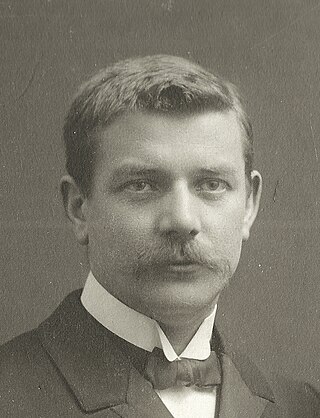
Hans Hunziker was a Swiss psychiatrist, professor of social medicine at University of Basel, head of the Cantonal Health Office of Basel-Stadt, and notable for his contributions on neuropsychiatry.

Igor Semyonovich Kon was a Soviet and Russian philosopher, psychologist, and sexologist. His scientific publications have been translated into many languages, such as English, German, and French.

German Alexandrovich Lopatin was a Russian revolutionary, journalist and writer.

August Yulevich Davidov was a Russian mathematician and engineer, professor at Moscow University, and author of works on differential equations with partial derivatives, definite integrals, and the application of probability theory to statistics, and textbooks on elementary mathematics which were repeatedly reprinted from the 1860s to the 1920s. He was president of the Moscow Mathematical Society from 1866 to 1885.
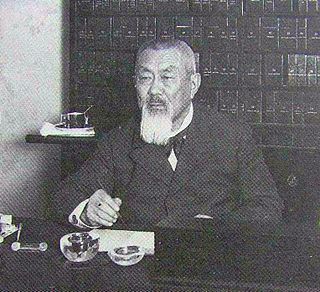
Pyotr Aleksandrovich Badmayev or Peter Badmayev, born Zhamsaran, was a Russian doctor and political figure. He was an ethnic Buryat from Buryatia. He played a large part in introducing Tibetan medicine to imperial Russia, and was also active in politics in the late 19th and early 20th century.
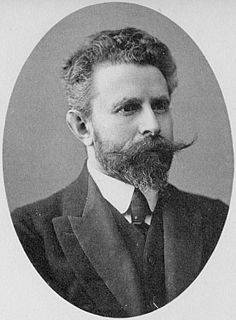
Mikhail Iosifovich Averbakh was a Russian and Soviet ophthalmologist, Doctor of Medicine (1900), Full Member of the Academy of Sciences of the USSR (1939), founder and first director of the Helmholtz Central Institute of Ophthalmology.

Frédéric Recordon was a Swiss physician and ophthalmologist.
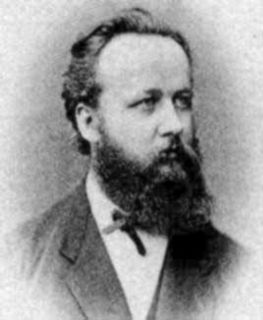
Carl Friedrich Geiser was a Swiss mathematician, specializing in algebraic geometry. He is known for the Geiser involution and Geiser's minimal surface.





